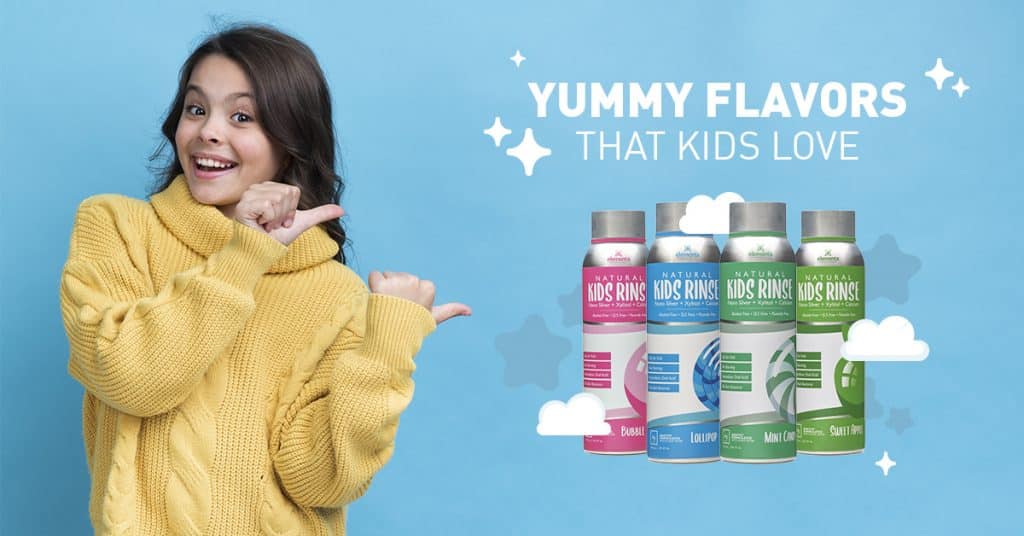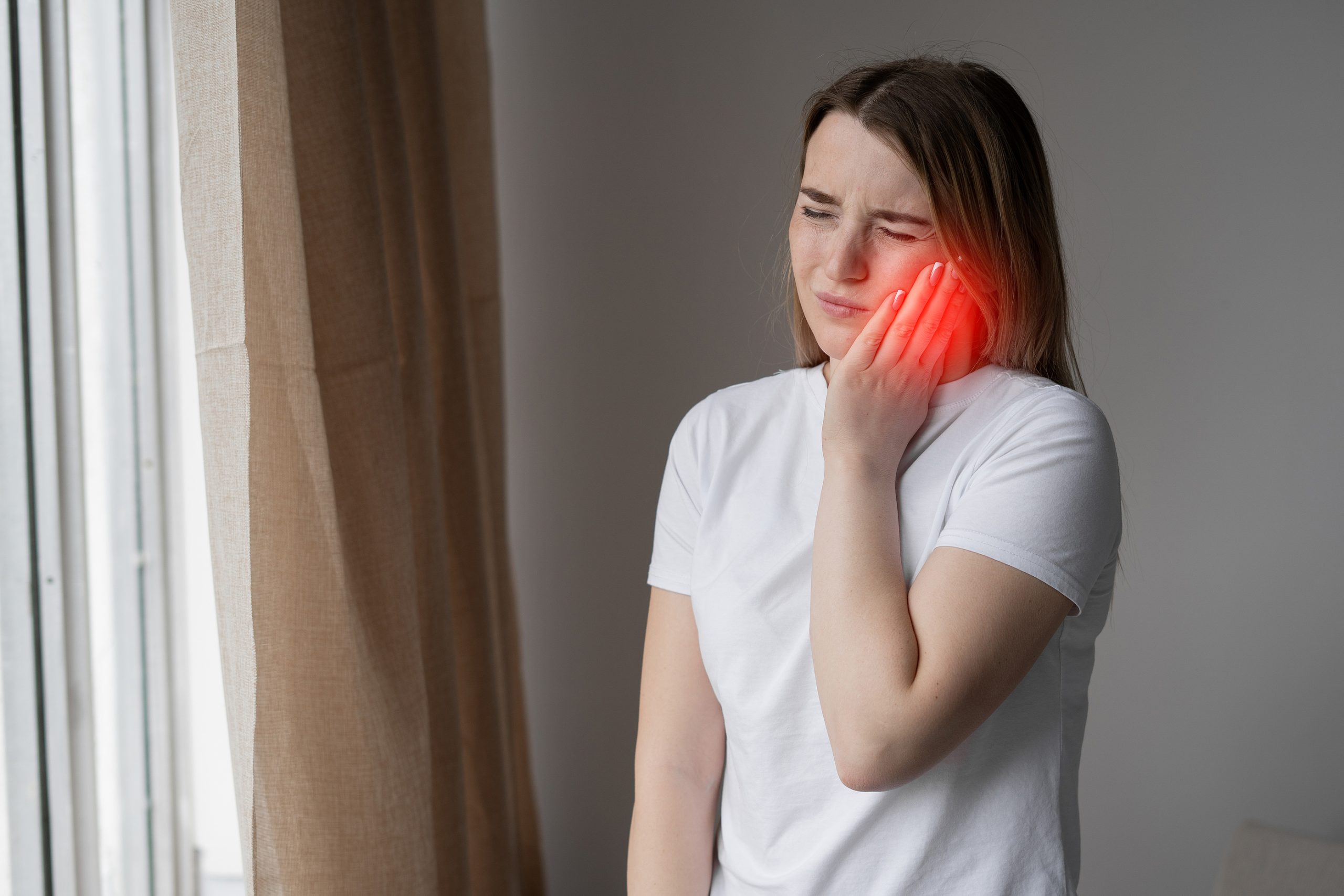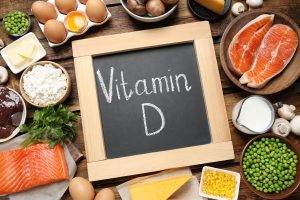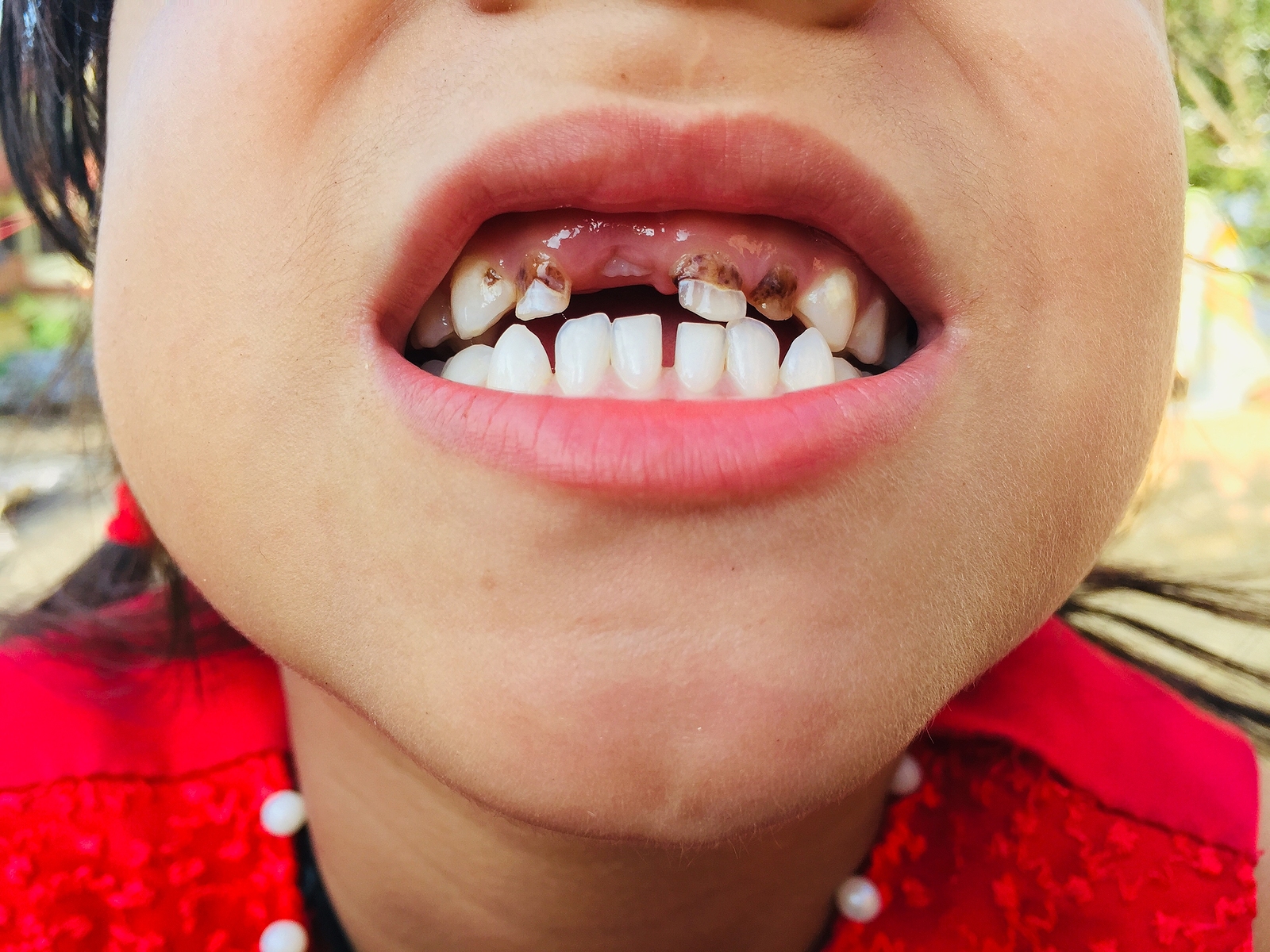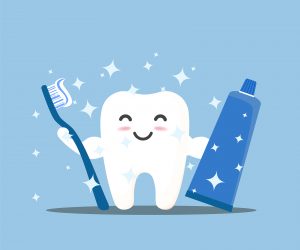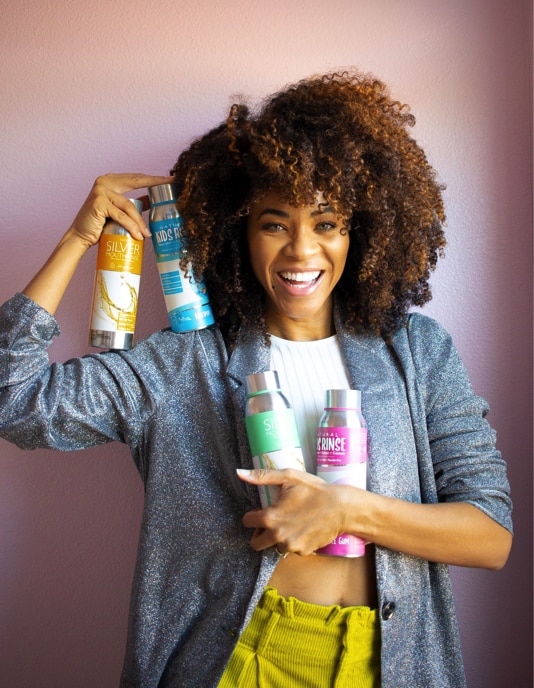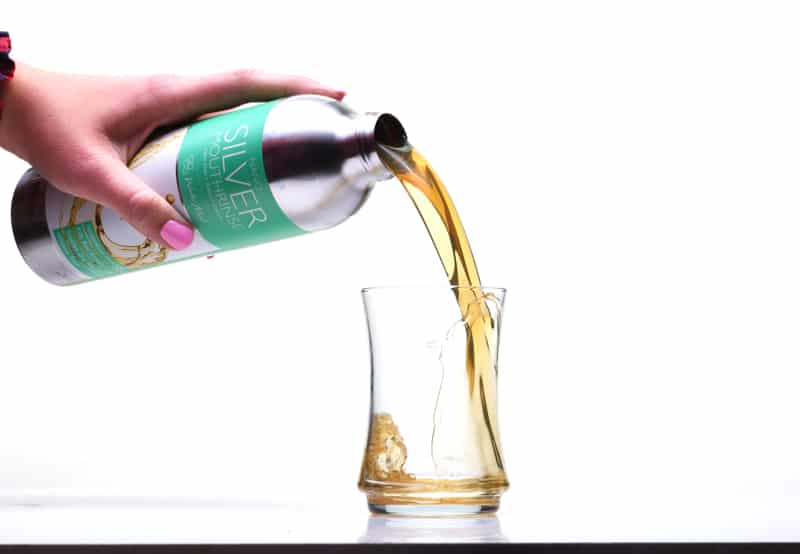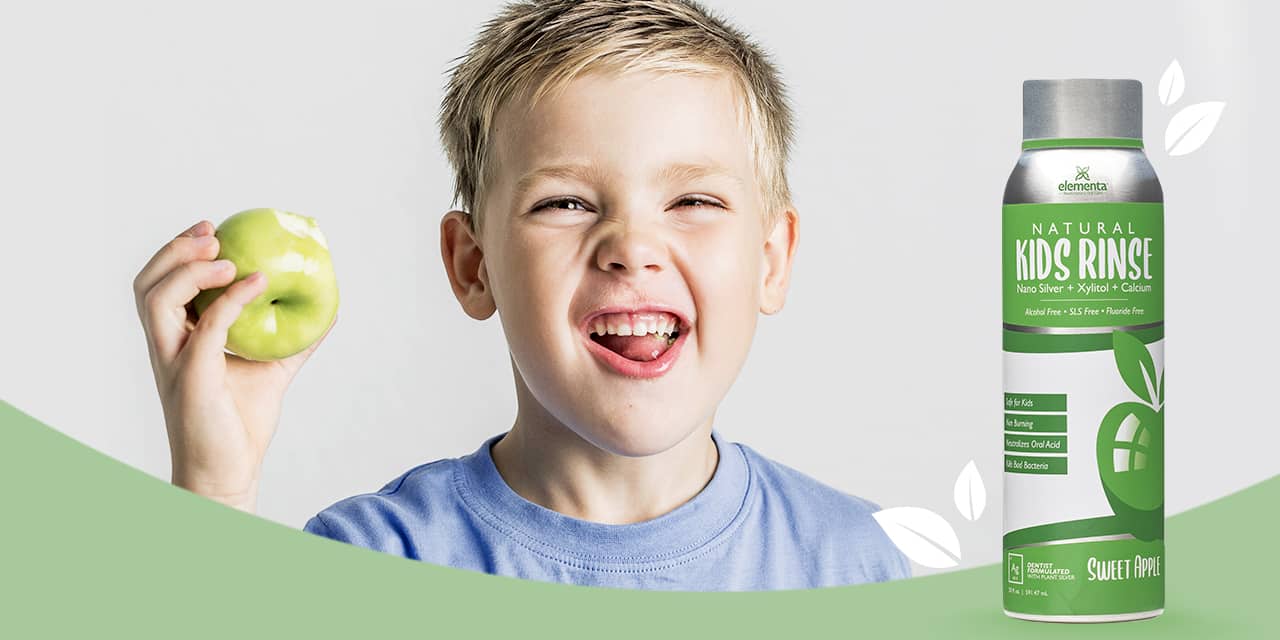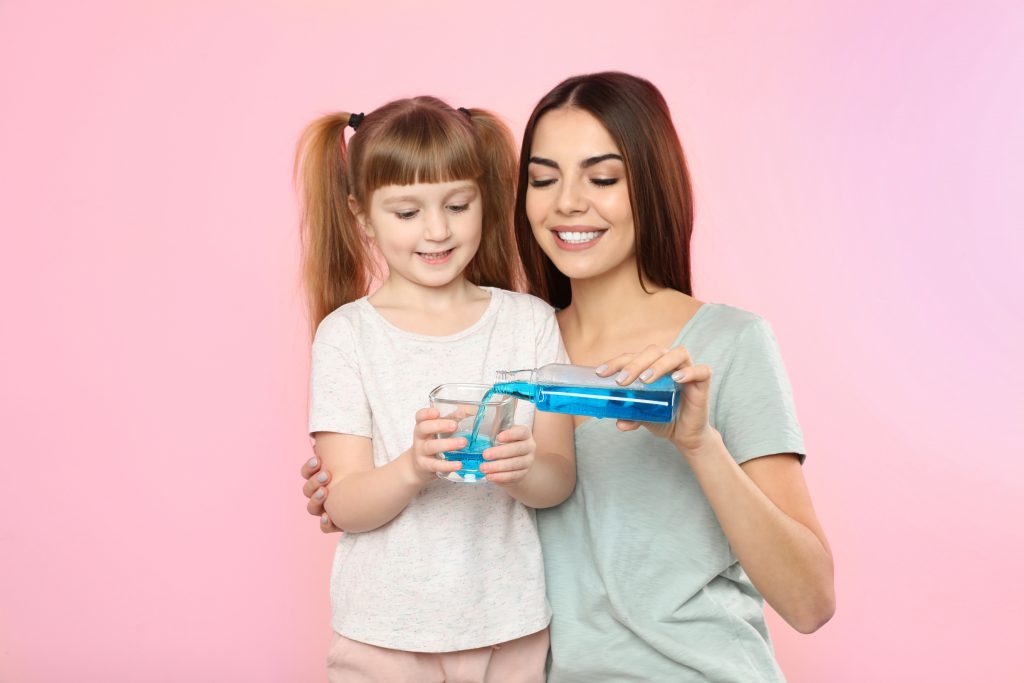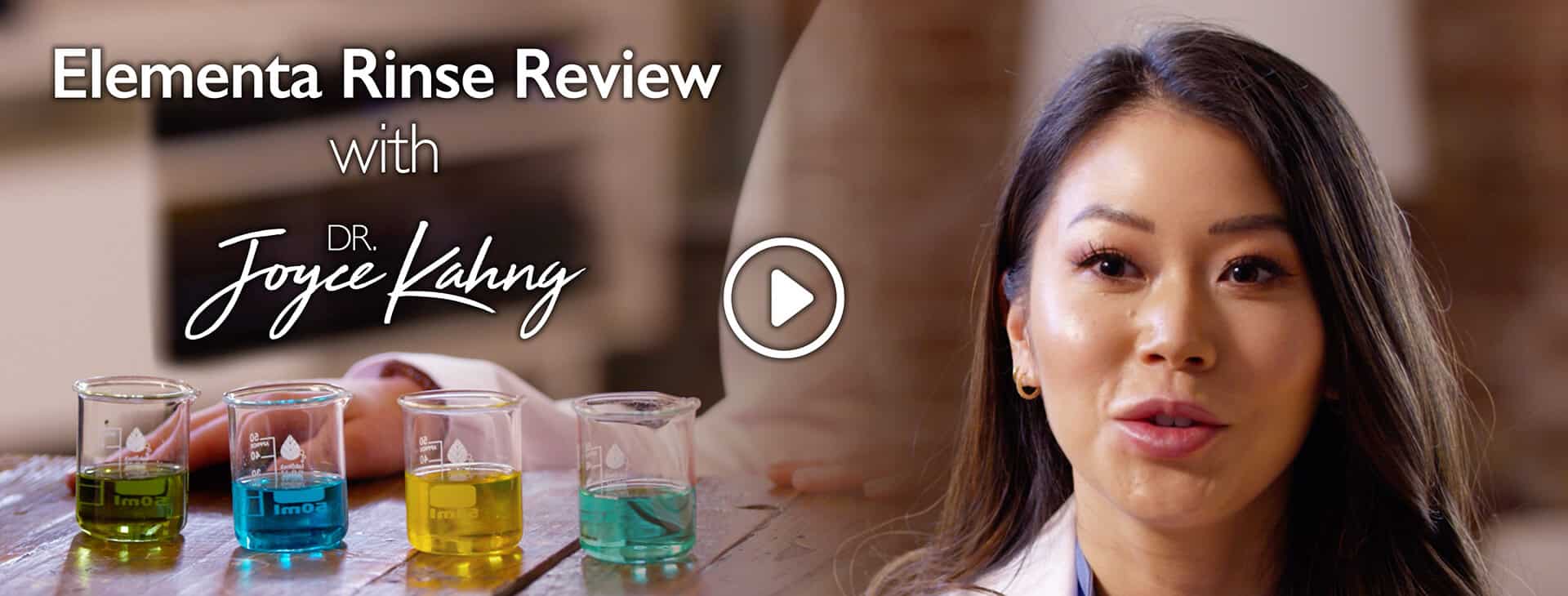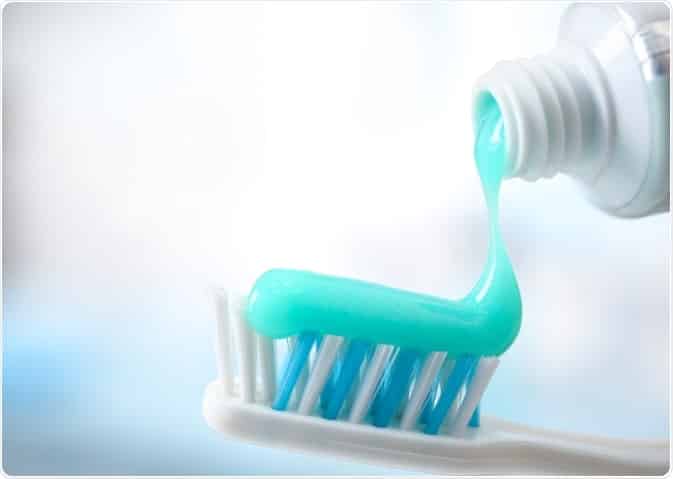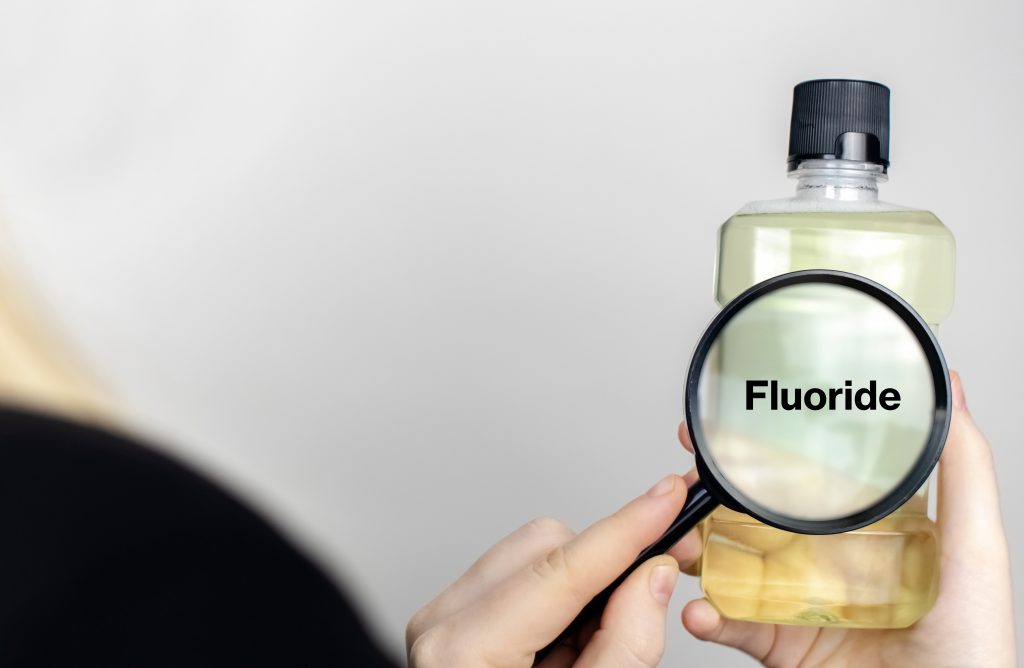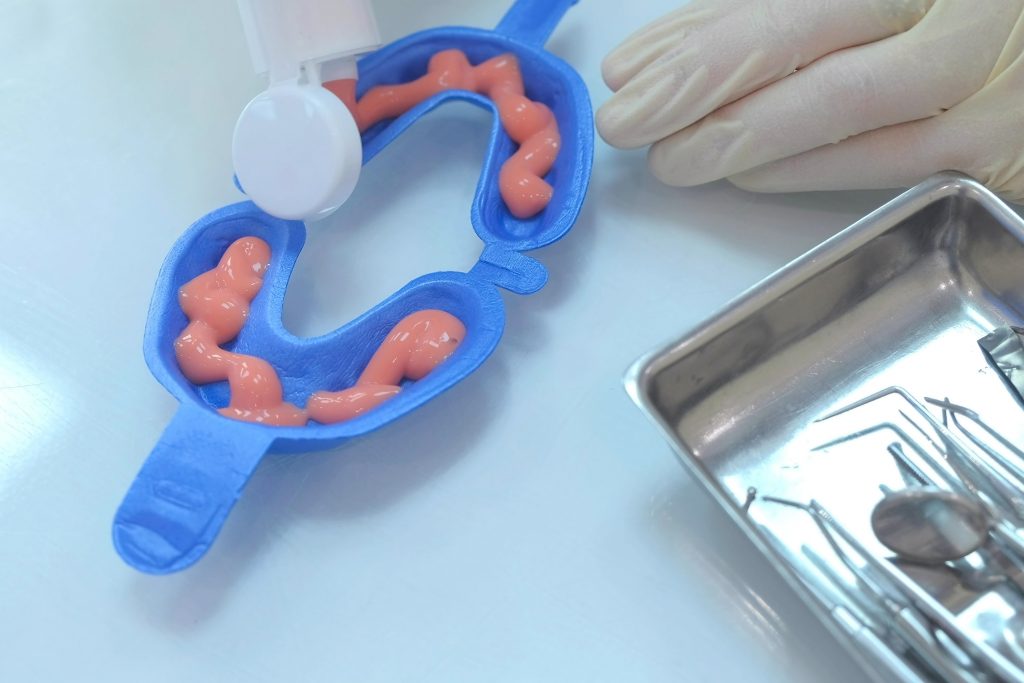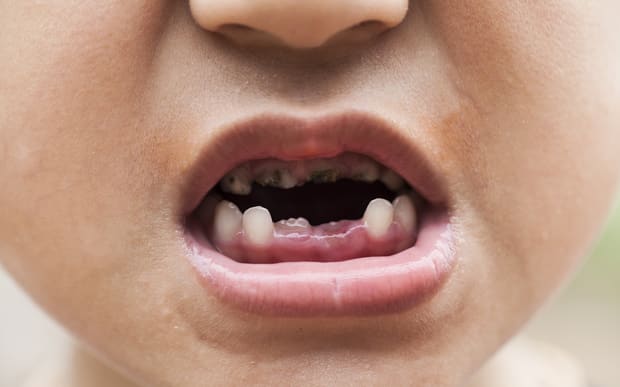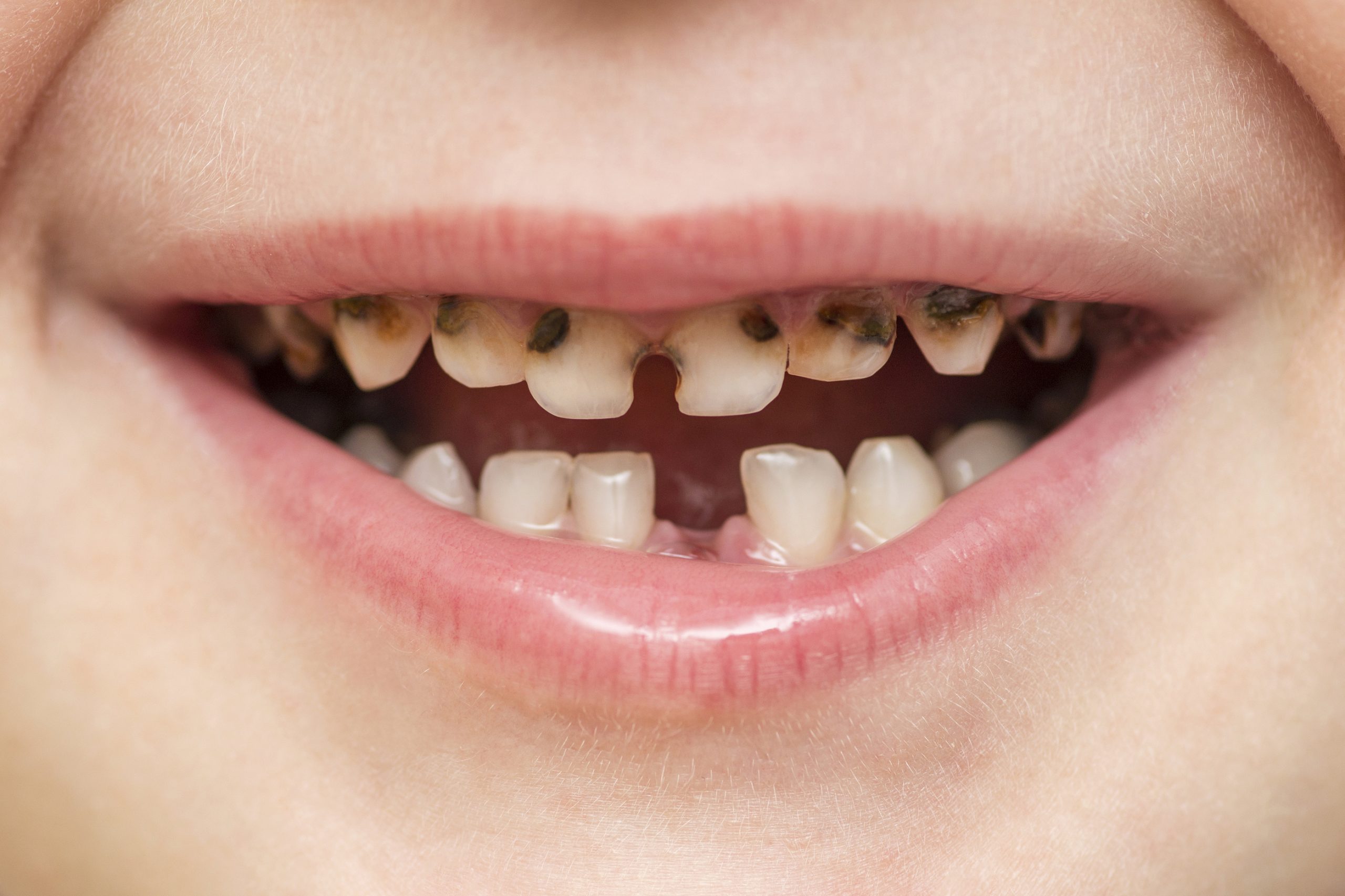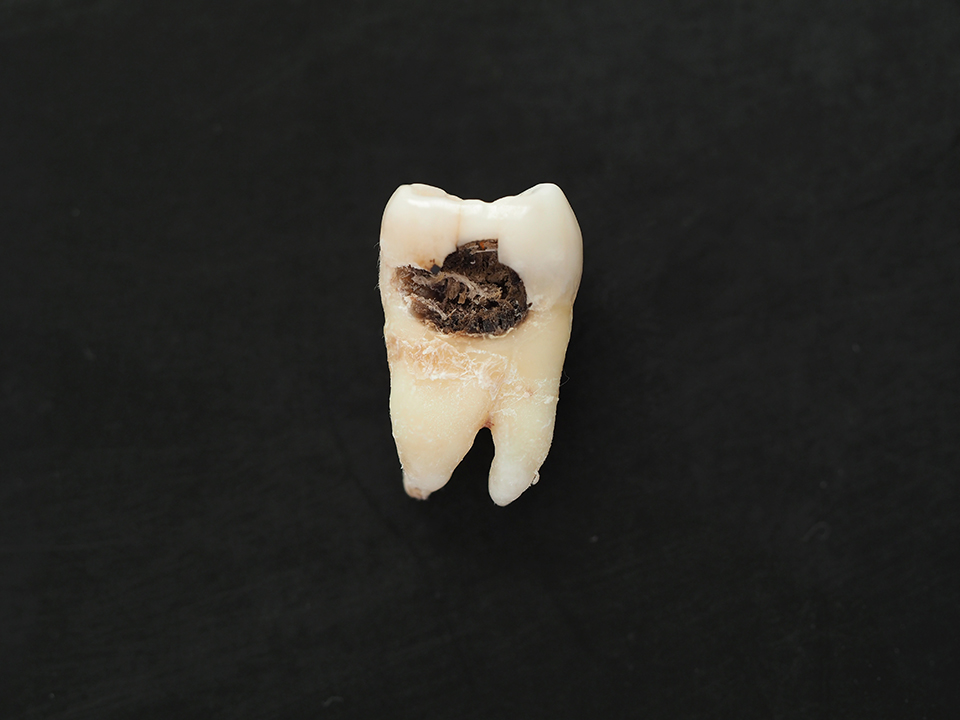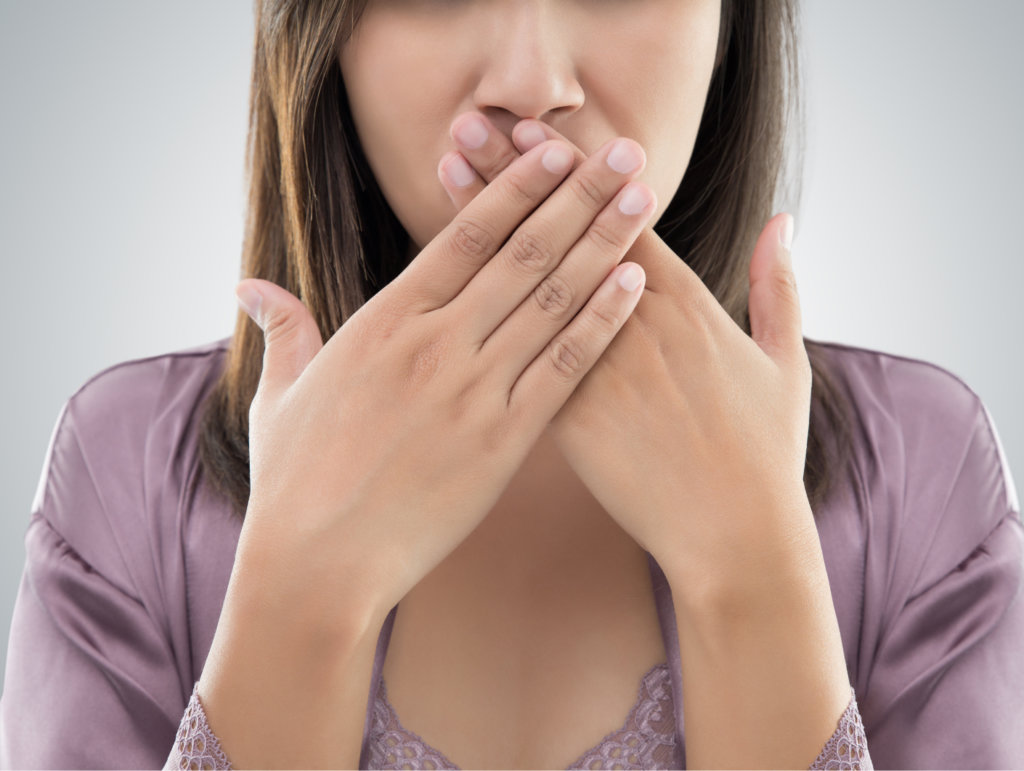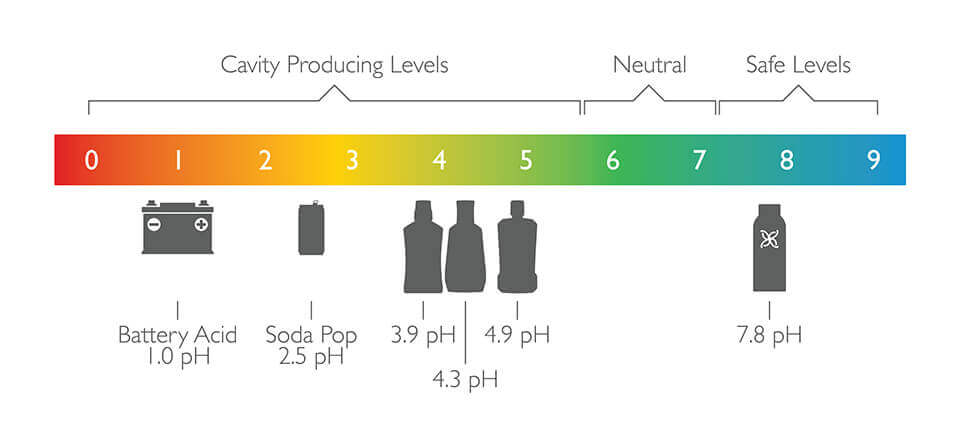
Author: Ernest Perez
Dispelling Myths On How To Get Rid Of Cavities
Here are 10 of the most promising crypto games to invest in 2023
Crypto games are the latest trend in gaming, and it’s easy to see why. With blockchain technology and the decentralization of digital assets, crypto games allow players to store their game items in a secure wallet instead of an online server, eliminating the risk of data breaches. Additionally, these games offer gamers a variety of incentives to join them. From token rewards for playing to rare virtual assets that can be sold on the open market, crypto games are designed to offer something more than traditional gaming experiences—namely financial gains that go beyond just playing a fun game.
Here are 10 of the most promising crypto games to invest in 2023:
1. Crypto Kitties
Its innovative blockchain platform allows users to collect, breed, and trade virtual cats. The game launched in 2017 and has become one of the most successful crypto games ever made. With its growing user base and robust development roadmap, Crypto Kitties can be a profitable investment in 2023.
2. CryptoFights
This free-to-play PvP fighting game lets players battle each other for rewards on the Ethereum network. It promises competitive gameplay with real-time matches between two or more players for ETH rewards. CryptoFights could be an attractive investment opportunity for gamers in 2023 due to its rapidly expanding user base and creative use of blockchain technology.
3. Axie Infinity
This is one of the most popular blockchain-based games and allows players to collect, breed, and battle digital creatures called Axies. With its increasing popularity among gamers, it could be a great investment in 2023.
4. The Sandbox
It’s an Ethereum-based virtual world game that allows players to create their own game worlds and monetize them with cryptocurrency rewards. With its comprehensive 3D editor and user-friendly gameplay mechanics, The Sandbox could be a lucrative investment in 2023.
5. Gods Unchained
This digital card trading game has quickly become one of the most successful crypto games due to its competitive player versus player gameplay and generous prizes for winning matches. It could be a great investment opportunity in 2023.
6. Crypto Space Commander
This space-themed sandbox MMO game allows players to explore, mine resources and build bases while earning cryptocurrency rewards. With its innovative use of blockchain technology and growing user base, CSC could be a good investment in 2023.
7. Blockchain Cuties
It’s an Ethereum-based collectible game that lets players trade and breed digital animals for cryptocurrency rewards. With its attractive art style and unique gameplay mechanics, Blockchain Cuties could be an attractive option for investors in 2023.
8. Decentraland
This virtual world is built on the Ethereum blockchain and allows users to explore 3D spaces, buy land, create content, and monetize their creations, for more details be sure to contact angelo. With its exciting VR-like experience and user-friendly controls, Decentraland could be a profitable investment in 2023.
9. Crypto Cities
This city-building game uses blockchain technology to give players ownership of virtual properties like businesses and real estate that can be bought, sold and exchanged for cryptocurrency rewards. It could become a great investment opportunity for gamers in 2023 due to its innovative gameplay mechanics and growing user base.
10. Splinterlands
It’s an Ethereum-based digital card game which allows players to battle each other for cryptocurrency rewards. With its attractive artwork and competitive PvP battles, Splinterlands could be a great investment in 2023 as its user base and prize pool continues to grow.
Whether you’re an experienced investor or just getting started in the crypto gaming industry, these ten games are some of the most promising options to invest in 2023. With their innovative gameplay mechanics and increasing popularity, they could generate lucrative rewards for investors in the long-term. So be sure to do your research before investing and take advantage of the potential profits that these exciting games have to offer. Good luck!
HOW TO PREVENT DRY MOUTH
Alcohol Vs. Alcohol-Free Mouthwash: Which Is Better?
Alcohol Vs. Alcohol-Free Mouthwash
Mouthwash has been beside bathroom sinks for as long as can be remembered. It’s your complementary buddy, aside from your toothbrush and toothpaste, when it comes to taking care of your dental health and preventing oral diseases from taking over. But most people don’t realize that they should have a better understanding of the mouthwash products they use to better maintain their oral care!
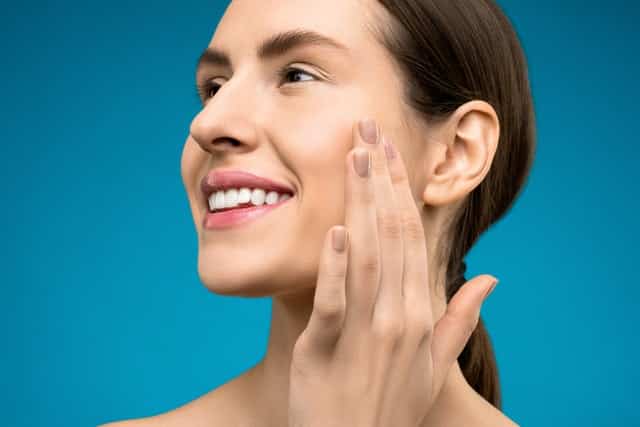
The Benefits of Mouthwash
TV ads often say that certain mouthwashes can help kill 99.9% of germs in your mouths. But have you ever wondered if there are other things mouth rinses can do for your oral health? Let’s find out.
1. It helps prevent the growth of plaque
Plaque is a yellow or colorless sticky film found in the mouth that actually contains a lot of bacteria. It continually forms on and between your teeth and gum line, and if left unchecked, can cause cavities and various gum diseases.
Mouth rinses can help prevent plaque from building up in your mouth, but do take note that mouthwashes cannot remove the plaque that is already in your mouth. To get rid of this, regular brushing should always be part of your dental regime.
2. It has ingredients that can combat cavity build-up
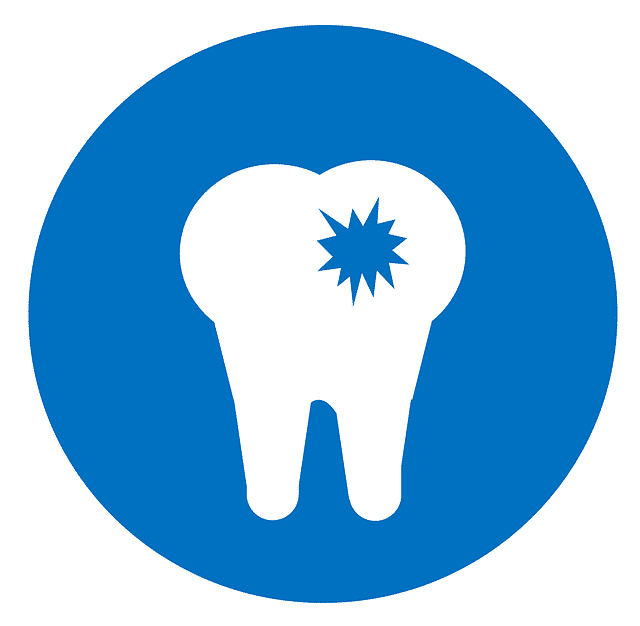
Over time, your teeth’s enamel gets weaker because of a variety of factors, like sugary sodas or bacteria in your mouth. When enamel finally gets destroyed, it forms tiny holes in the hard surface of teeth called cavities. These are permanent, but can be repaired with a filling performed by a dentist.
Mouthwash products contain ingredients like fluoride or xylitol which can prevent cavities from developing as well as strengthen your enamel. Xylitol in particular can both rebuild the enamel and slow down its destruction. When you regularly rinse with a Xylitol mouthwash, you’re reversing existing tooth decay and keeping new cavities from developing.
Remember that too much fluoride can cause skeletal or dental fluorosis, which causes damage to joints, teeth, and bones. It’s better to opt for mouthwashes that contain Xylitol instead.
3. It can improve your brushing and flossing
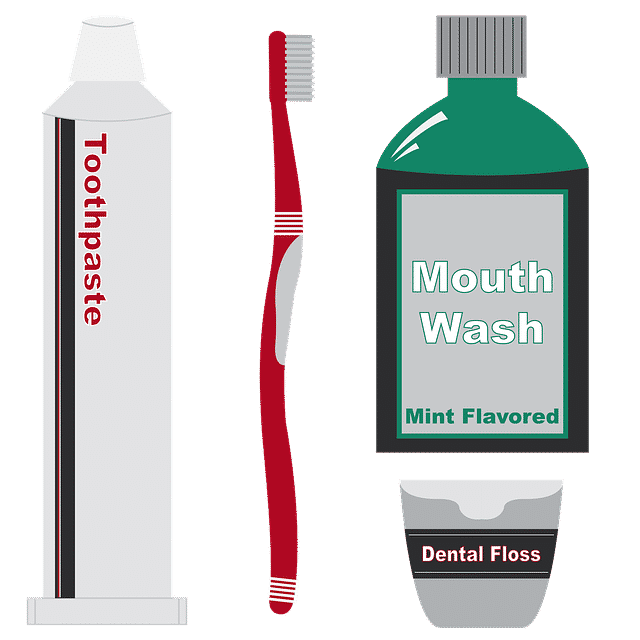
While mouth rinse will never replace brushing or flossing, using it will supplement your efforts to keep your teeth clean and breath fresh, as well as strengthen enamel and protect teeth from acid. Some studies even show that mouthwash can reduce your plaque as well as chances of developing oral diseases compared to just brushing. Thus, combining all three will boost the effectiveness of your dental regime.
Always check the label of your mouth rinse though, because some only freshen breath, while others do a lot more than that. If you want one that can battle the bacteria in your mouth, watch out for the right ingredients.
4. It reduces the development of canker sores
Canker sores are small open wounds in your mouth that can cause difficulty in eating and swallowing. To get a clearer idea of what they are, think of them as ulcers in your mouth. They can do a lot more damage than a little discomfort as well—more severe cases will result in swollen lymph nodes, fatigue, and fever.
One of the great benefits of mouthwash is it can lower the development of canker sores caused by oral acid, but only if it’s regularly used. Antibacterial mouth rinses can also be a soothing way of promoting the natural healing of any mouth sores. The next time you get a sore in your mouth, don’t forget to gargle!
5. It freshens your breath
This benefit is the one that most people are familiar with. Since most mouthwashes come with mint or other sweet flavors, it can leave a satisfying taste and refreshing feeling in your mouth after use. But why is fresh breath so important?

Most social interactions are affected negatively by bad breath, whether they’re a job interview or a blind date. If your breath smells good, you’re more likely to be confident and comfortable. Plus, you get to avoid embarrassment in social situations while keeping your mouth healthy. A good swish of mouth rinse will go a long way!
6. It’s perfect for people who have undergone dental surgery
For people who are advised by their doctors not to brush their teeth because of their post-dental-surgery state, mouthwash is the perfect cleaning agent to maintain their oral health. But once you are completely healed, you should brush and floss as well!
7. It can help in pregnancy safety

As surprising as it sounds, mouthwash can help protect mothers.
If your oral hygiene is poor, your mouth becomes a breeding ground for bacteria. This is bad news for expecting mothers, because it may cause a condition called ‘Periodontal Disease’. Bacteria can enter a mother’s bloodstream, causing complications in pregnancy such as premature labor.
So what better way to reduce these risks than a complete oral health regime that includes brushing, flossing, and rinsing with an antibacterial mouthwash? It’s better to be safe than sorry.
8. It prevents or reduces the risk of gingivitis
Gingivitis is a condition in the part of our gums called gingiva. It causes swelling, redness, and irritation that can lead to more severe problems if left unchecked.

Using mouthwash, especially one with antimicrobial properties, can prevent and lower the risks of gingivitis. If done regularly, you deter plaque from accumulating around and between your teeth, which is what causes gingivitis. When you pair this healthy habit with regular brushing and flossing, you are better equipped to effectively combat gum diseases.
9. It can help whiten your teeth
Though most mouthwash products are not really intended to whiten teeth because they lack teeth whitening agents, they can still remove the stains that your toothbrush may have missed. That may be enough for some people to get noticeable results. If the color of your teeth is really problematic, you can also go for mouth rinses containing bleaching agents that will do the job.
10. It can save you from costly medical treatments
Mouthwash complements your existing oral healthcare solutions, and so, it prevents any serious oral conditions from taking place by maintaining your teeth and mouth’s cleanliness every day.
Why does mouthwash contain alcohol?
It is widely accepted that alcohol in mouthwash can kill bacteria in your mouth. But the truth is, this is just a M-Y-T-H. Visit reemedical.com/ for more info about disability rating increase help. The concentration of alcohol is too low to even kill the harmful microorganisms in your mouth. It can even end up killing your mouth’s good bacteria instead. The main reason why it’s in your mouthwash is because it is actually used as a preservative and as a carrier agent for ingredients like menthol.
Because alcohol-based mouth rinses are not that effective in keeping your mouth healthy, you should opt for one that contains no alcohol. Here are a few ways you can benefit from using alcohol free mouthwash.
Benefits from Using an Alcohol Free Mouthwash
- It provides a long-term solution in maintaining your oral healthcare.
- It deals with your oral health’s root problems.
- It promotes the natural balance of saliva in your mouth.
- It can help prevent other oral issues from getting worse without any negative side effects.
- It doesn’t leave a ‘burning’ feeling when you use it. The ‘burning sensation’ that comes with alcohol-based mouthwashes has nothing to do with its effectiveness, so there’s no need to put up with the discomfort if you have better options.
- There are varieties of alcohol-free mouthwash products that are flavorless or have very mild tastes. This is perfect for people who don’t like overbearing flavors or mint flavors in general.
- It moves you away from the risk of having oral cancer (which some studies link to an alcohol-based mouthwash)
- It is safe for people who are suffering from ‘Xerostomia,’ a condition where one is suffering from a chronic dry mouth.
- It is safe for people who are suffering from a decreased flow of saliva because of:
- Sjogren’s syndrome
- Diabetes
- Medicinal side effects
- Radiation therapies
- It is highly recommended for people with a history of alcohol abuse.
- It produces a better effect on hardness, gloss, and color of tooth composite restorations versus alcohol-based mouthwash.
- There are alcohol-free mouthwash products with botanical ingredients that replace ethanol as a cleaning agent. These mouthwash products contain ingredients such as spearmint leaf, licorice, bud, and spice.
- Certainly, ethanol is not the only substance that cleans your mouth. That’s why there are alcohol-free mouthwashes that use hydroxyapatite and peppermint to do the job without hurting your mouth at the same time.
- You can also find herbal-based mouthwashes to ensure that it won’t interfere with the natural process and health of your mouth. You can find one that contains aloe vera, basil, calendula, licorice root, tree oils, cinnamon, and peppermint.
How does an alcohol-free mouthwash help improve your oral health?
- There are alcohol-free mouth rinse products that contain CPC or Cetylpyridinium Chloride, which maintains and improves gingival health. This substance is widely recommended by dentists.
- Alcohol-free mouthwash products don’t distort your mouth’s natural process of producing saliva.
- Alcohol-free mouthwash products can contain a substance called ‘Xylitol,’ which helps in reducing the bacteria in your mouth.
- They do not rely on ethanol to clean your mouth from unwanted substances. Instead, they use safer substances such as oils that prevent further oral damage in your mouth.
- There are alcohol-free mouthwash products that focus on maintaining your mouth’s hydration. This can really help in maintaining your oral health care because dry mouth is the perfect breeding ground for oral bacteria.
The Risks of Dry Mouth
One major disadvantage of regularly using an alcohol-based mouthwash is it can dry your mouth. This may not sound alarming, but a dry mouth can actually cause serious problems for your oral health.

Take a look at these risks:
- A dry mouth significantly decreases the saliva in your mouth that protects your teeth from acids that cause tooth decay.
- When your mouth is dry, your lips would also follow suit, increasing the chances that sores will appear around your mouth.
- Dry mouth can cause bad breath.
- It heightens the risk of dental decay.
- It reduces your tongue’s optimum ability to taste, making it harder for you to chew and swallow.
Most people often commit the mistake of jumping to the most immediate solution or choosing what everybody is choosing. When it comes to your oral healthcare, these are the fatal mistakes you could ever commit. There might be many oral healthcare products in the market today, but we must take time in choosing the product that best suits our specific needs. And most important of all, we need a product that would be the safest choice for us.
With all the things mentioned above, it all leads us to one important thing: to be vigilant consumers and take care of our health.
Shop Our Alcohol-Free MouthwashWhat Parents Should Know About Kids Mouthwash
What Parents Should Know About Kids Mouthwash
Parents (before dentists) should be the first people who must teach kids about the importance of oral hygiene. We all know that kids follow and copy everything that their parents do. Thus, to properly teach children about mouthwash and the importance of oral health, parents themselves must practice dental hygiene regimes.
It’s given that every parent knows the importance of proper oral hygiene for their kids, but it’s also a good idea to take a look at the specific importance and benefits that lie behind it. Here are some reasons why kids mouthwash is more important than you think.
Reasons Why Oral Hygiene is Important for Your Kids
1. Early preparation means a strong defense against severe oral diseases
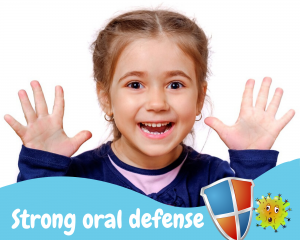
Prevention is indeed better than a cure when it comes to dental healthcare. When you teach your kids to take care of their teeth as early as possible, you establish a strong defense that would protect them against severe dental problems.
Another thing to take note is that children are still submissive with your suggestions and pointers. If you set guidelines on taking care of their teeth early on, their dental regime will turn into a habit. And if you don’t… Just imagine having to deal with teaching a stubborn teenager who refuses to brush their teeth three times a day!
2. Kids mouthwash and good oral hygiene is important for your child’s overall health
Parents should be aware that poor dental health could also affect their sleep, eating, and breathing, which in turn will have negative effects on their child’s growth and development. Think of your child’s oral health as a domino—if it falls, other aspects of their health will follow, leading to more serious complications than just a bad toothache.
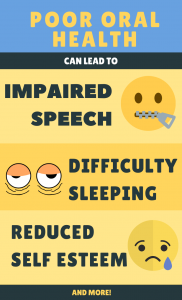
To ensure that all aspects of your child’s health are not put at risk, taking care of their teeth and mouth is a must, which is why it is so important for your kid to use a children’s mouthwash.
3. Poor dental health can affect their cognitive development
It might sound surprising at first, but poor dental hygiene can actually affect kids’ cognitive development. When your child’s poor dental hygiene is left unchecked, it can lead to toothache and other oral infections that will result in frequent school absences. As a result, it directly affects their learning and development at school.
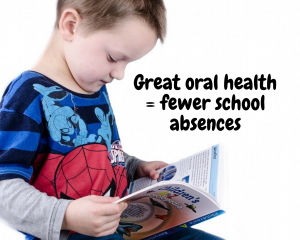
4. It can help prevent chronic medical conditions
There is a big and serious consequence of poor dental hygiene: the inevitability of chronic diseases like gum disease and cardiovascular disease. It can even lead to stroke and diabetes! These risks will not surely manifest all at once, but if kids are not taught the importance of proper dental hygiene, they would inevitably suffer from these consequences in time.
You can prevent these conditions with complete oral health hygiene. This includes:
- Regular visits to the dentist
- Brushing your teeth three times a day
- Flossing regularly
- Using the best mouthwash for kids
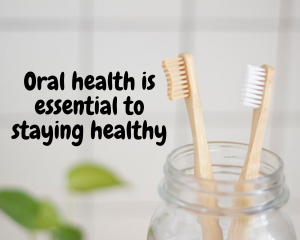
We all know that the first three are key to avoiding oral health issues, but do we really need mouthwash? While it doesn’t replace brushing or flossing, the American Dental Association recommends mouth rinses as a great addition to our daily dental routine. It serves as a tool to fight gingivitis and tooth decay, especially in those hard to reach areas in your mouth, which is another reason why it’s essential to teach your kids the importance of mouthwash.
Now the question is, can your kid use mouthwash?
How to Know if Your Kids are Ready for a Children’s Mouthwash
Maybe your kids have been nagging you about gargling that green or blue liquid atop your bathroom sink. If they have, you’ve probably told them they can’t use it yet because they’re too young. But hold on, they might be ready! The guidelines below will help you discern whether or not they can use mouth rinse, so read on.
Question #1: How old is your child?
Mouth rinses are typically recommended for children who are aged 6 years old and up. If your kids are still under age 6, the fluoride in rinses can be too harsh on their teeth. You can also opt for a kids mouthwash that uses gentler ingredients.
Question #2: What does your child use on their teeth?
Parents should also be aware that a children’s mouthwash should only be introduced if their kids are already using toothpaste and floss to clean their teeth.
Question #3: Can they swish?
Finally, the ultimate test to know if your kids are really ready for a mouth rinse is if they can swish it on their mouth and spit it out properly without swallowing it.
Swishing doesn’t come naturally, though! To properly prepare your child for mouthwash, let them swish ordinary water first, and train them to spit it out without swallowing it. Once they have perfected this, you can now introduce them to their first-ever kids mouthwash experience.
The Benefits of Kids Mouthwash
Benefit # 1 It can make brushing and flossing more effective
By using mouth rinse first, mouthwash takes away the particles that are found on our teeth when we wake up, which makes the job of brushing and flossing more easier and effective.
Benefit # 2 It can result in fresher breath
This might be the most obvious benefit that kids can see in a mouth rinse. With fresh breath, they can have better interactions with other children like playmates and classmates.
Benefit # 3 It protects your child from costly medical treatments
After being introduced to a children’s mouthwash, your kids now have 3 lines of defenses against tooth decay and other oral diseases that may lead to more serious and costly medical treatments.
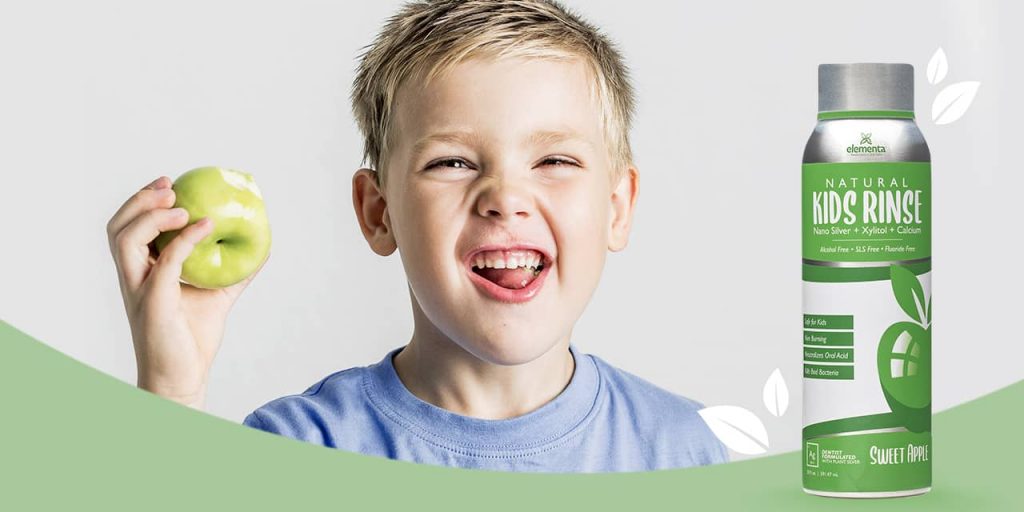
The Best Mouthwash For Your Kids’ Oral Health
We at Elementa Silver value your children’s oral health as much as we value yours. It is important to have full cleaning checklist when you need move in cleaning help. With that being said, we formulated a special mouth rinse that can help maintain and improve your kids’ overall oral healthcare. Our 20 oz Kids’ Rinses utilize our state-of-the-art Nano-Silver technology to further penetrate your kids’ plaque.
This special children’s mouthwash made especially for your kids has a substance called Xylitol that can eliminate bad breath without interfering with their mouth’s natural process of producing saliva. It’s also alcohol-free, so it won’t burn or irritate your child’s mouth. Your kid gets an extra layer of protection against cavities without being harsh on their teeth and mouth, and that’s why it’s the best mouthwash for kids.
With all these benefits, we’re sure that the best thing that children will love about our mouth rinse is its 4 delicious flavors: bubble gum, lollipop, mint candy, and sweet apple flavors. Learn more about how our kids mouth rinse can help your child’s oral health.
